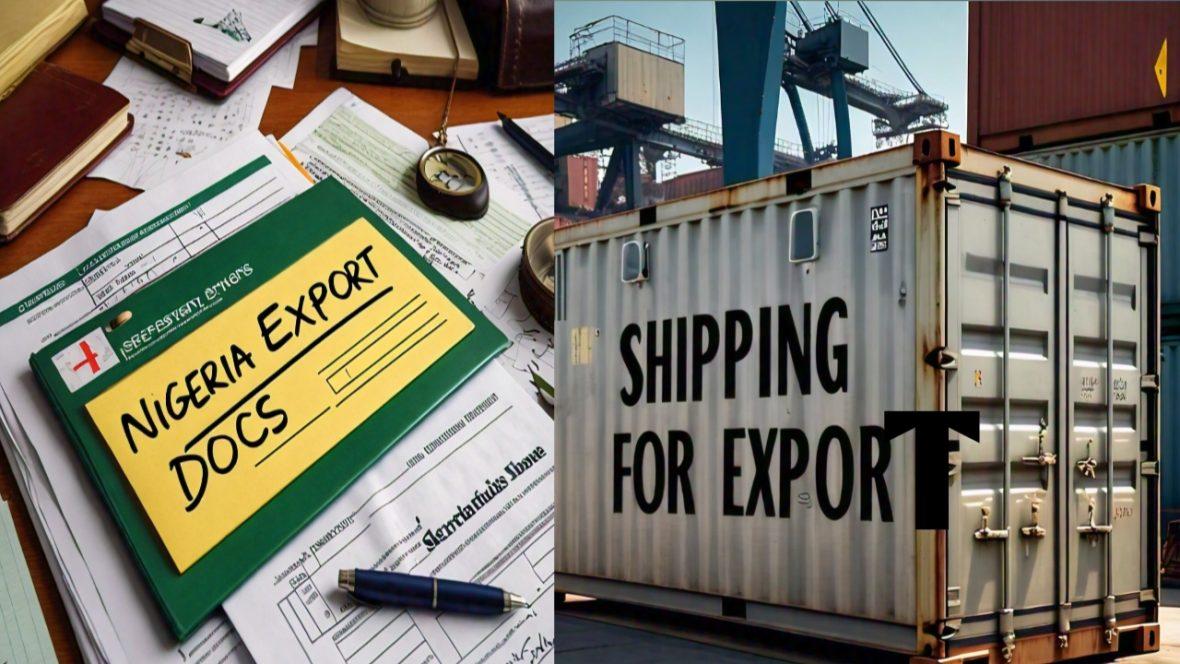Exporting goods from Nigeria involves several essential documents that must be properly obtained and maintained to ensure compliance with regulations and to facilitate smooth international transactions. Below is a detailed overview of the key documents required for exporting goods from Nigeria, their purposes, how to obtain them, and relevant contact information.
1. Proforma Invoice
Description: A proforma invoice is a preliminary document sent by the exporter to the importer before the actual sale takes place. It outlines the goods to be sold, their quantities, specifications, and prices.
Purpose:
- Provides a detailed description of the goods and the conditions of sale.
- Helps secure payment or financing, often required by banks for issuing letters of credit.
How to Obtain:
- Exporters can create a proforma invoice using accounting software or templates available online.
2. Commercial Invoice
Description: The commercial invoice serves as a formal bill for the sale of goods, issued by the seller to the buyer.
Purpose:
- Details the final transaction, including seller and buyer information, goods description, and pricing.
- Required for customs clearance and serves as proof of sale.
How to Obtain:
- Can be generated using templates or accounting software. Must include all necessary details and be signed by the seller.
3. Packing List
Description: A packing list provides a detailed breakdown of the contents of each package in the shipment.
Purpose:
- Ensures the correct items are packed and shipped.
- Used by customs officials to verify the contents during inspections.
How to Obtain:
- Prepared using spreadsheet software or templates at the time of packing.
4. Bill of Lading (B/L)
Description: The bill of lading is a legal document issued by the carrier to the shipper, acknowledging receipt of the goods for transport.
Purpose:
- Serves as a receipt for cargo and a document of title.
- Contains details about the shipment and is crucial for customs clearance.
How to Obtain:
- Received from the shipping company or freight forwarder once goods are loaded for shipment.
Contact:
- Nigerian Ports Authority
- Website: Nigerian Ports Authority
5. Export Permit/License
Description: An export permit or license is an official authorization required for exporting certain products from Nigeria.
Purpose:
- Ensures compliance with government regulations, especially for controlled goods.
How to Obtain:
- Obtained from the Nigerian Export Promotion Council (NEPC) or other relevant bodies. The application may require documents like a business registration certificate.
Contact:
- Nigerian Export Promotion Council (NEPC)
- Website: NEPC
- Address: 2nd Floor, Tigris Crescent, Off Aguiyi Ironsi Street, Maitama, Abuja, Nigeria.
6. Certificate of Origin (COO)
Description: The certificate of origin certifies the country in which the goods were produced.
Purpose:
- Required by customs authorities to determine applicable tariff rates.
How to Obtain:
- Can be obtained from the Nigerian Export Promotion Council (NEPC) or a Chamber of Commerce.
Contact:
- Chambers of Commerce in Nigeria
- Website: Nigerian Chamber of Commerce
- Address: 1, Alhaji Masha Road, Surulere, Lagos, Nigeria.
7. Insurance Certificate
Description: An insurance certificate provides evidence of coverage for the shipment against loss or damage.
Purpose:
- Protects both the exporter and importer from financial losses due to unforeseen circumstances.
How to Obtain:
- Available from insurance companies that provide marine cargo insurance.
Contact:
- African Alliance Insurance Plc
- Website: African Alliance Insurance
- Address: 5th Floor, A.J. Nwodo House, 130, Ikorodu Road, Jibowu, Lagos, Nigeria.
8. Export Declaration Form (EDF)
Description: The export declaration form is submitted to customs authorities to declare the goods being exported.
Purpose:
- Provides details on the nature, quantity, and value of goods.
How to Obtain:
- Available from the Nigerian Customs Service. Can be filled out online via the Nigeria Integrated Customs Information System (NICIS) or obtained from customs offices.
Contact:
- Nigerian Customs Service
- Website: Nigerian Customs Service
- Address: 4, Abidjan Street, Wuse Zone 3, Abuja, Nigeria.
9. Health and Phytosanitary Certificates
Description: Required for agricultural products and food items to ensure they meet health and safety standards.
Purpose:
- Verifies that the goods are free from diseases and contaminants.
How to Obtain:
- Obtainable from the National Agency for Food and Drug Administration and Control (NAFDAC) or the Nigerian Agricultural Quarantine Service.
Contact:
- NAFDAC
- Website: NAFDAC
- Address: 1, Hena Street, Off Kachia Road, Barnawa, Kaduna, Nigeria.
10. Customs Clearance Document
Description: Issued by customs upon completion of export clearance procedures.
Purpose:
- Serves as proof that the necessary duties and taxes have been paid and goods are authorized for export.
How to Obtain:
- Submit all required documentation to the Nigerian Customs Service for approval.
11. Letter of Credit (LC)
Description: A letter of credit is a financial document from a bank that guarantees payment to the exporter upon fulfillment of specified conditions.
Purpose:
- Provides security for both parties in the transaction.
How to Obtain:
- Importers request a letter of credit from their bank, specifying the terms that the exporter must meet to receive payment.
12. Trademarks and Patents (if applicable)
Description: For branded or patented products, documentation related to trademarks and patents may be necessary.
Purpose:
- Protects intellectual property rights and enhances brand credibility.
How to Obtain:
- Registered through the Trademark Registry of the Federal Ministry of Industry, Trade and Investment.
Contact:
- Federal Ministry of Industry, Trade and Investment
- Website: FMITI
- Address: 2, Abidjan Street, Wuse Zone 3, Abuja, Nigeria.
Conclusion
Navigating the export process in Nigeria requires an understanding of the various documents needed for compliance with legal, financial, and logistical requirements. Each document plays a crucial role in facilitating international trade. Exporters should stay informed about changes in regulations and requirements and obtain necessary documentation through the appropriate channels to ensure efficient and compliant export processes.




